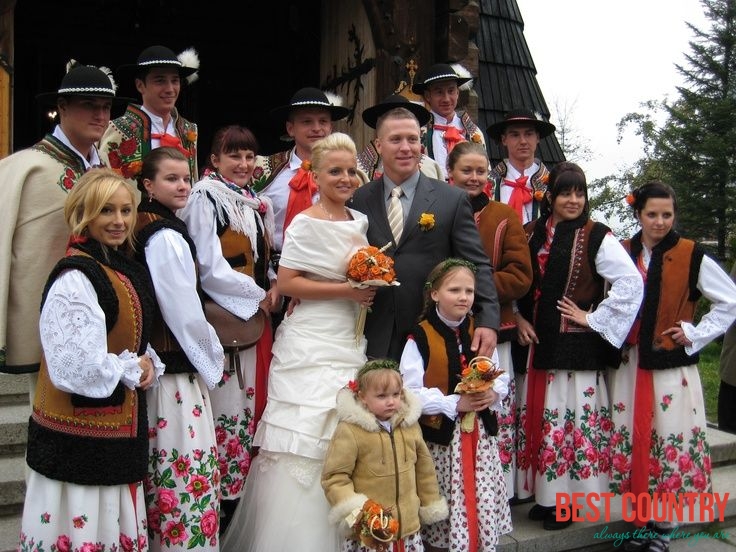The night before a girl in Poland hears her wedding bells, her mother and female relatives redo her customary single maidenly braid into two. This traditional wedding hair style symbolizes the new step the bride-to-be is taking into marriage.
Polish Wedding Traditions
The reception celebration usually includes lively polka music and dancing. If a Polish bride can drink from her glass of wine, and not spill a drop, she is considered lucky.
The "money dance" is always popular at a traditional reception in Poland. Guests pin money to the bride's wedding dress to buy a dance from her. The newlyweds might put these gifts of cash towards their honeymoon expenses.
More traditionally, the maid of honor wears an apron and collects the money given by the guest to dance with the bride.
After all the guests have danced with the bride, they form a tight circle around her, and the groom tries to break through the circle while the guests try hard to keep him out.
Once he breaks through, he picks up his bride and carries her away from the wedding reception. The money collected during the dance is sent with them to spend on their honeymoon.
 At the wedding reception, the bride will dance with her father, whilst a relative holds out an apron.
At the wedding reception, the bride will dance with her father, whilst a relative holds out an apron.
Guests who place money in the apron win the opportunity to dance with the bride. After a time, the groom will throw in his wallet, thus surpassing all the other contributions. He will then whisk away his new wife on their honeymoon.
The sharing of bread, salt and wine is an important feature of weddings in Poland. The parents of the newly married couple will present them with rye bread, lightly sprinkled with salt, and a glass of wine.
The bread represents the hope that the bride and groom will never go hungry. The salt is a reminder that life may be difficult at times, but that they will learn to cope.
The wine symbolizes the desire that the couple will never go thirsty, and that their lives will be filled with health and happiness.
The removal of the bridal veil, known as the oczepiny ceremony, is another traditional element of a Polish wedding day.
The bride's veil will be removed as she enters the reception hall, signifying the end of her maidenhood and her transition to a married woman.
A funny hat will be placed on the groom's head, representing the wish that the marriage will be full of happiness and laughter.